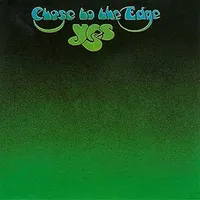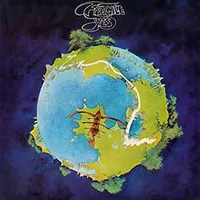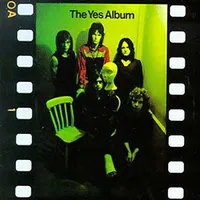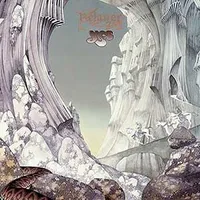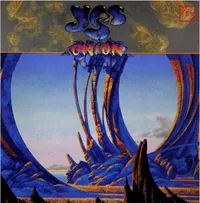The Yes albums you should definitely own
The musicians may have changed, but the search for musical transcendence never wavered. These are the very best albums by Yes
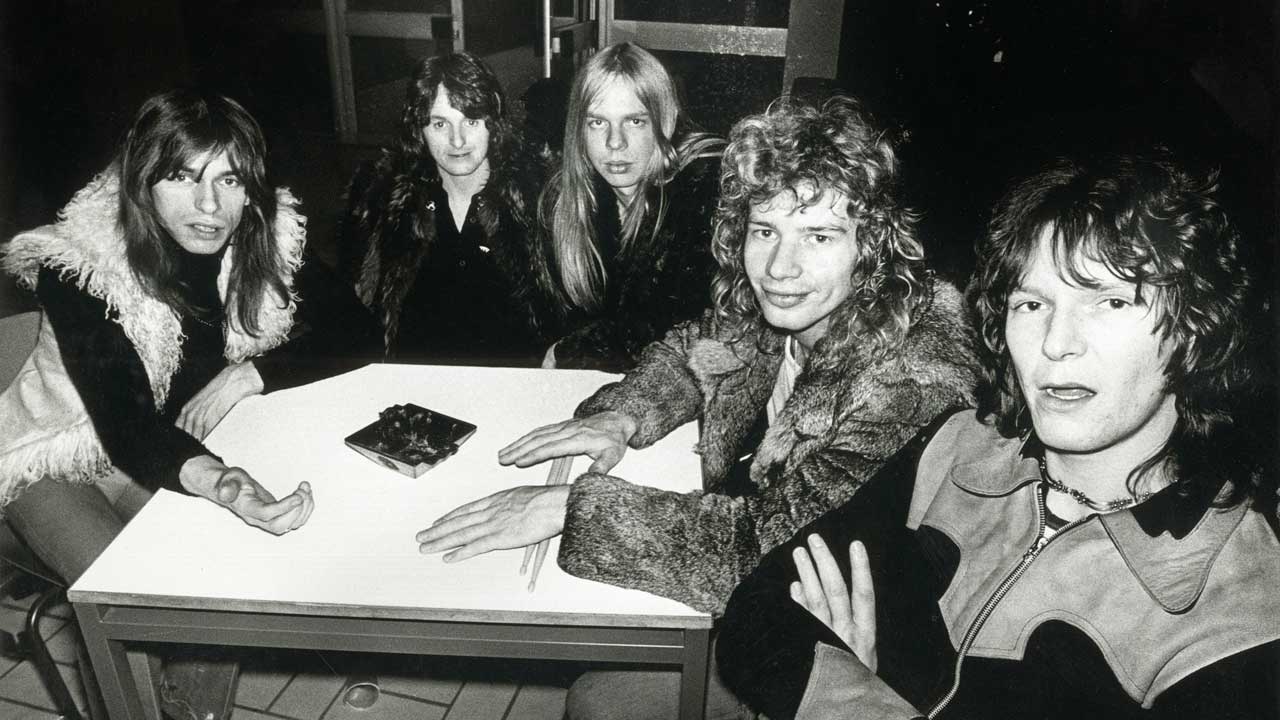
Select the newsletters you’d like to receive. Then, add your email to sign up.
You are now subscribed
Your newsletter sign-up was successful
Want to add more newsletters?
If there's a group that defines the pros and cons of the whole progressive genre, it’s surely Yes. Their back catalogue includes astonishing peaks which are the equal of any music of its type.
The core of Yes was always Jon Anderson and Chris Squire: Anderson’s unmistakeable clear, high vocals and Squire’s trebly and innovatively boisterous bass guitar had been central to all line-ups of the group, until Anderson left in 2008. And now Squire has gone for good.
The often underrated first line-up of Anderson, Squire, keyboardist Tony Kaye, drummer Bill Bruford and guitarist Peter Banks recorded some excellent music. But when Steve Howe replaced Banks and Wakeman replaced Kaye in quick succession it opened up new dimensions in the band’s sound. After Alan White replaced Bruford in 72, Yes had unbroken success for the rest of the decade.
Cracks appeared in late 79 as they attempted to come up with a follow-up to the botched Tormato album and Wakeman and Anderson quit and were replaced by Trevor Horn and Geoff Downes, who’d had hits as pop duo Buggles. That move astonished everyone After this configuration dissolved, Squire and White demoed material with Jimmy Page as XYZ before opting to form Cinema with South African born guitarist/multi instrumentalist Trevor Rabin, the line-up completed by original Yes keyboardist Kaye.
Near to completion of their album, it was felt that Anderson’s return would cap it off vocally and stimulate interest. The resulting 90125 became Yes’s biggest selling album ever.
In 1988, Anderson quit to form Anderson, Bruford, Wakeman And Howe. That foursome would be reabsorbed into Yes for an eight-piece reunion tour in 1991 before the 90125 line-up regrouped.
Rabin subsequently retired from Yes after after more than a decade at the helm, and Wakeman and Howe were re-enlisted. Wakeman left for a brief period, and Billy Sherwood, a guitarist and singer who Squire, White and Rabin had recorded with was brought into the now six-piece version of the band with Russian keyboardist Igor Khoroshev. Wakeman was back by 2002 for a renewed spell of touring.
Since then, the merry-go-round has continued. In 2008 Canadian singer Benoit David joined the band, having previously fronted a Yes tribute act called Close To The Edge, but he left in 2011 to be replaced by Jon Davison.
More recently Anderson, Rabin and Wakeman joined forces in ARW (and then Yes feat. ARW) to play Yes material live. A planned album never came to fruition, and the band disbanded without releasing any studio recordings. Since then, Anderson has made noises about working with Yes again.
It's complicated.

Close To The Edge (Atlantic, 1972)
Some Yes purists – not least Bill Bruford, who quit the group straight after this album – felt that with this album not only Yes but the whole progressive scene had reached its zenith and could go no further. It’s certainly one of the crowning achievements of the entire genre, its cohesiveness even amazing the group, since it was born out of the usual chaos and disagreements that even then too often surrounded the band.
That such cohesion and harmony could be born out of such disharmony is astounding. It was certainly a long way down to follow-up Tales From Topographic Oceans (Atlantic, 1973), which found the group too often succumbing to vices of padding and long solo passages seemingly for their own sake.
On their first album with Wakeman the group really hit their stride, and Fragile includes some of the band’s key works: Heart Of The Sunrise epitomises the ambition, pioneering feel and extraordinary lack of constraints that the group’s music had at the time. It rightly lacks the vocal harmonies Yes had become famous for, with Anderson’s now lone voice unfolding an epic of oddly elated loneliness with superbly panoramic and sympathetic backing from the rest of the band.
Music from the album was used as the tension-building soundtrack in Yes fan Vincent Gallo’s movie Buffalo 66 more than two decades later. Roundabout and the atypical South Side Of The Sky remain in the Yes live repertoire today.
This debut is an illuminating template on which the group would quickly build. It features some exceptional vocal harmonies, plus a harder edge and musicianship that is clearly superior to their more whimsical psychedelic London contemporaries.
The fledgling Yes’s statement of intent is apparent right from the beginning with album opener Beyond And Before, the mellifluous Sweetness and in their invigorating reinventions of both The Beatles’ Every Little Thing She Does and The Byrds’ I See You.
The Yes Album (Atlantic, 1971)
With the band already shedding the remnants of their early psychedelic skin, the arrival of guitarist Steve Howe brought extra focus, ambition and imagination to the group. The songs on this album are generally longer and more exhilaratingly far-ranging than on previous records, but not tangential.
Starship Trooper remains one of the finest achievements of any Yes line-up and, like much of this album, builds an excellent bridge between the band’s earlier sound and the path they would explore. Highlighting their sudden lack of musical boundaries, the stunning midsection suddenly flips into harmonies that would’ve made Brian Wilson break down in his sandpit and weep with despair if this hadn’t already become his default behaviour by then. The Yes Album is an apt album title from the realigned group.
Going For The One Atlantic (Atlantic, 1977)
Caped crusader Rick Wakeman had returned for what was a useful recap of Yes’s many moods. While the title track and Parallels proved that the band could still write the kind of compact and tuneful songs of their earlier days, the emotive Turn Of The Century and the long-form Awaken underlined this particular Yes fives-piece’s marvellous chemistry and subtlety.
Throw in the lightweight Wondrous Stories (their first hit single), and what you have is a highly consistent, thoroughly deserved No.1 album bang in the middle of punk rock’s Year Zero. The subsequent Tormato would be a missed opportunity, however, with promising material often poorly served by messy execution and a tinny, compressed production as the group members began to grate on each other.
90125 began life as the debut album by Cinema, with Trevor Rabin and Chris Squire sharing vocals. But the consistently excellent material clearly suggested that if the Yes brand name and Anderson’s inimitable vocals were added to the mix, an enormous hit could follow.
And so it proved. The combination of Rabin’s contemporary guitar histrionics and instinctively commercial writing, Trevor Horn’s state-of-the-art production and just enough of Yes’s inimitable character was extraordinarily potent commercially. Owner Of A Lonely Heart and It Can Happen sounded fantastic on the radio back then, and a new generation of fans was brought on board. It has dated now, but it’s still a very listenable album.
With Yes now down to a compact and resolute four-piece after years of upheaval and inconsistency, the keyboards-less Anderson, Howe, Squire and White steadied the ship with what was a surprisingly strong album.
With the San Diego Orchestra filling in much of the colour on the album that normally would have been provided by keyboards, the title track and In The Presence Of were among the strongest songs Yes had come up with in their classic style since the Going For The One album.
Don’t Go – replete with its strangely (especially considering no Downes or Horn in the line-up) Bugglesesque effects-treated voice – showed that the band could still write compact and catchy singles-style material.
Yes’s 1974 album Relayer regained the spark missing from the unwieldy Tales From Topographic Oceans. The jazzier Patrick Moraz temporarily replaced Wakeman as Yes threw together everything from NYC fusion and Russian worksong chanting, with Howe on bitingly aggressive and ingenious form.
Forty minutes long, with one full-side track and two sharing the flip, it resembled Close To The Edge; a tacit acknowledgement that Tales had drifted too far, maybe. Yet it also explored entirely new terrain, offering more aggressive, experimental sounds on the gigantic The Gates Of Delirium.
...and one to avoid
You can trust Louder
Rick Wakeman calls this ‘Onion’, because it brings tears to his eyes to even think of it, a frankly mild remark compared to the opinion Steve Howe amongst others. The album began life when Anderson, Bruford, Wakeman and Howe began recording a follow up to their laudable self-titled 1989 debut, but when a few tracks recorded by the remaining members of the Rabin-led group were added for the eight-piece Yes to plug on the (surprisingly good) ‘Union’ tour, it became, to quote Trevor Rabin, ‘a black mark against Yes’.
Much of the merely passable ABWH material was overdubbed and then reworked on computer with the lacklustre Rabin tracks bolted on. A complete mess.
Sign up below to get the latest from Classic Rock, plus exclusive special offers, direct to your inbox!
Classic Rock is the online home of the world's best rock'n'roll magazine. We bring you breaking news, exclusive interviews and behind-the-scenes features, as well as unrivalled access to the biggest names in rock music; from Led Zeppelin to Deep Purple, Guns N’ Roses to the Rolling Stones, AC/DC to the Sex Pistols, and everything in between. Our expert writers bring you the very best on established and emerging bands plus everything you need to know about the mightiest new music releases.
